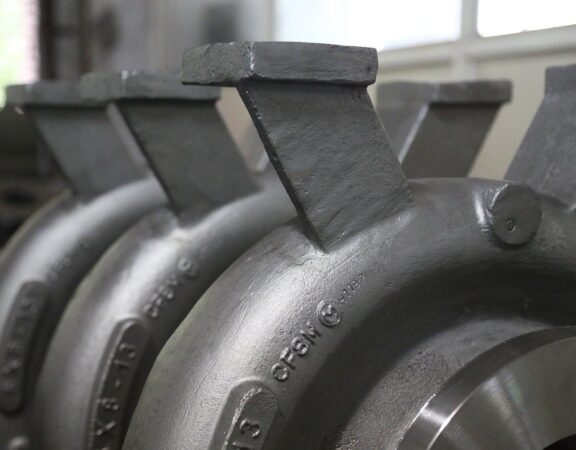- Filter by
- Categories
- Tags
- Show all
- Article
- Confusion
- Contract
- Copyright
- Corporate
- Domain Names
- Employment
- Expungement
- Expungement
- Grey Marketing
- Industrial Designs
- Licensing
- Obviousness
- Opposition
- Passing Off
- Patent
- Patent Infringement
- Patent Strategy
- PCK News
- PM(NOC)
- Procedure
- Prosecution
- Services
- Summary
- Trade Secrets
- Trademark
- Use
- Validity
- Abandonment
- Abstract Theorems
- Abuse of Process
- Accounting of Profits
- Alice/Mayo Test
- Ambiguity
- Anticipation
- Appeal
- Apple
- Artificial Intelligence
- Assignment
- Bargain Theory
- Biosimilar
- Biotech Patents
- Branding
- business
- CAFC
- Canada
- Certificate of Supplementary Protection
- Chemical Patent
- CIPO
- claim
- Claim Construction
- Class Actions
- College of Patent Agents and Trademark Agents
- combination drugs
- Commercial Success
- Common General Knowledge
- Confidential Information
- Confusion
- Contract
- Copyright
- Copyright Infringement
- Costs
- Counterfeit
- Court of Appeals for the Federal Circuit
- COVID-19
- Damages
- Data Protection
- Design Patents
- Distinctiveness
- Diversity
- DNA Patents
- Domain Names
- Dosage Range
- Double Patenting
- Due Care
- E-Commerce
- Enablement
- Estoppel
- Evidence
- Expert Evidence
- Fair Use
- Federal Court
- Federal Court of Appeal
- File Wrapper Estoppel
- Food and Drug Regulations
- Fraud
- funding
- Generic Drugs
- Hague Agreement
- Indefiniteness
- Induced Infringement
- Industrial Designs
- Injunction
- Innovation
- Innovative Drugs
- Insufficient Disclosure
- Intellectual Property
- Inter Partes Review
- Investors
- IP Litigation
- IP Strategy
- IP Treaty
- IPIC
- Jurisdiction
- Law Firm
- Licensing IP
- Madrid Protocol
- Methods of Medical Treatment
- Non-Infringing Alternative
- Non-Practicing Entity
- Novelty
- Obviousness
- Official Marks
- On-Sale Bar
- Overbreadth
- Ownership & Inventorship
- Passing Off
- Patent Act
- Patent Agent
- Patent Appeal Board
- Patent Application
- Patent Drafting
- Patent Fees
- Patent Infringement
- Patent Law
- Patent Lawyer
- Patent Litigation
- Patent Prosecution
- Patent Rules
- Patent Strategy
- Patent Term Adjustment
- Patent Textbook
- Patent Trolls
- Patent Validity
- Patentable Subject Matter
- Patents
- PCT
- Pharmaceutical Patent
- Pharmaceutical Pricing
- PM(NOC)
- PMPRB
- Prior Art
- Prior Disclosure
- prior use
- Priority
- Privilege
- Product Specificity
- Promise Doctrine
- Provisional Patent
- Punitive Damages
- Reinstatement
- Remedies
- SCOTUS
- Selection Patent
- Software
- Software Copyright
- Software Patent
- Sound Prediction
- Springboard Profits
- SRED
- Standard of Review
- Start-up
- Startups
- Supreme Court of Canada
- Technology
- Trade Secrets
- Trademark
- Trademark Agent
- Trademark Expungement
- Trademark Infringement
- Trademark Law
- Trademark Opposition
- Trademark Registration
- Trademarks Act
- United States
- Use
- USPTO
- Utility
January 10, 2024
January 10, 2024
2023 CACP 23: Hot on the heels of the recent Benjamin Moore decision, Canada's Patent Appeal Board has considered the patentability of a computer-implemented invention.
October 17, 2023
October 17, 2023
Fed. Cir. 2022-1387, 2022-1492: In a recent decision, the Court of Appeals for the Federal Circuit cautioned patent holders against broadening amendments.
August 30, 2023
August 30, 2023
Fed. Cir. 2021-2063, 2021-2065: Sales of a product can be used to prove the inventiveness of a patent, but a US court warns that free samples are not relevant to patentability.
August 14, 2023
August 14, 2023
2023 FCA 168: In its long-awaited decision, the FCA reiterated the importance of judicial minimalism and rejected a structured analytical framework.
June 1, 2023
June 1, 2023
No. 21-757 (Supreme Court May 18, 2023) The Supreme Court of the United States applied bargain theory in its long-awaited decision regarding the enablement requirement of the Patent Act.
May 11, 2023
May 11, 2023
Since 2020, the USPTO has been denying requests for post-grant validity challenges based on the controversial Fintiv rule.
August 18, 2022
August 18, 2022
2022 FCA 142: The Court also commented on the relevant date for determining if an invention has been sufficiently described in the patent application.
June 30, 2022
June 30, 2022
2022 FCA 118: The appeal court saw no reason to interfere with a trial court decision that favoured MEG Energy in its ongoing patent dispute with inventor Jason Swist.
June 20, 2022
June 20, 2022
2022 FC 923: For the third time since 2011, CIPO’s approach to software patent eligibility has been struck down by the Federal Court.
March 7, 2022
March 7, 2022
Travel Sentry, Inc. v David A. Tropp, No. 2021-1908 (Fed. Cir., Feb. 14, 2022). The patents claimed an economic practice and method of organizing human activity, which is not subject-matter that can be protected under the patent system.
February 3, 2022
February 3, 2022
Canada's Federal Court dismissed allegations by Paid Search Engine that Google infringed a patent for optimizing paid search engines.
January 24, 2022
January 24, 2022
Outside Canada, Teva’s Copaxone® 40mg/mL dosing patents have been invalidated for obviousness, making way for generic competitors.
November 2, 2021
November 2, 2021
Fed. Cir. No. 2020-2044: The Federal Circuit found that the patents were directed to an abstract idea, with no additional elements to transform them into patentable subject-matter.
August 9, 2021
August 9, 2021
2021 FCA 154: The FCA held that overbreadth is not an “improper re-emergence of the promise doctrine”. Overbreadth is supported by bargain theory and s. 27 of the Act.
March 26, 2021
March 26, 2021
2021 FC 85: The Federal Court upheld the validity of all claims, but found that PetroChina was not infringing Maoz Betser-Zilevitch's patent for an SAGD.
March 3, 2021
March 3, 2021
Fed Cir, 2019-1927: The CAFC overturned a finding of non-obviousness by the US Patent Trial and Appeal Board on a patent owned by Melanoscan, LLC.
November 16, 2020
November 16, 2020
2020 FC 997: In a summary judgement for patent impeachment, Canada's Federal Court found a patent for heating hydraulic booms to be invalid for obviousness.
March 9, 2020
March 9, 2020
2020 FCA 30; 2020 FCA 31 – Janssen and Celltrion will return to court in June after the FCA overturned a lower court decision regarding a Remicade patent.
November 14, 2019
November 14, 2019
Fed. Cir. 2019-1803 – CAFC sides with Airbus, finding that prior art references may be analogous even if they are outside the "field of endeavour."
October 11, 2019
October 11, 2019
CAFC 2018-1763 – In fiercely dissented decision, a top US court has invalidated an automotive patent, further extending the reach of the controversial §101.



















